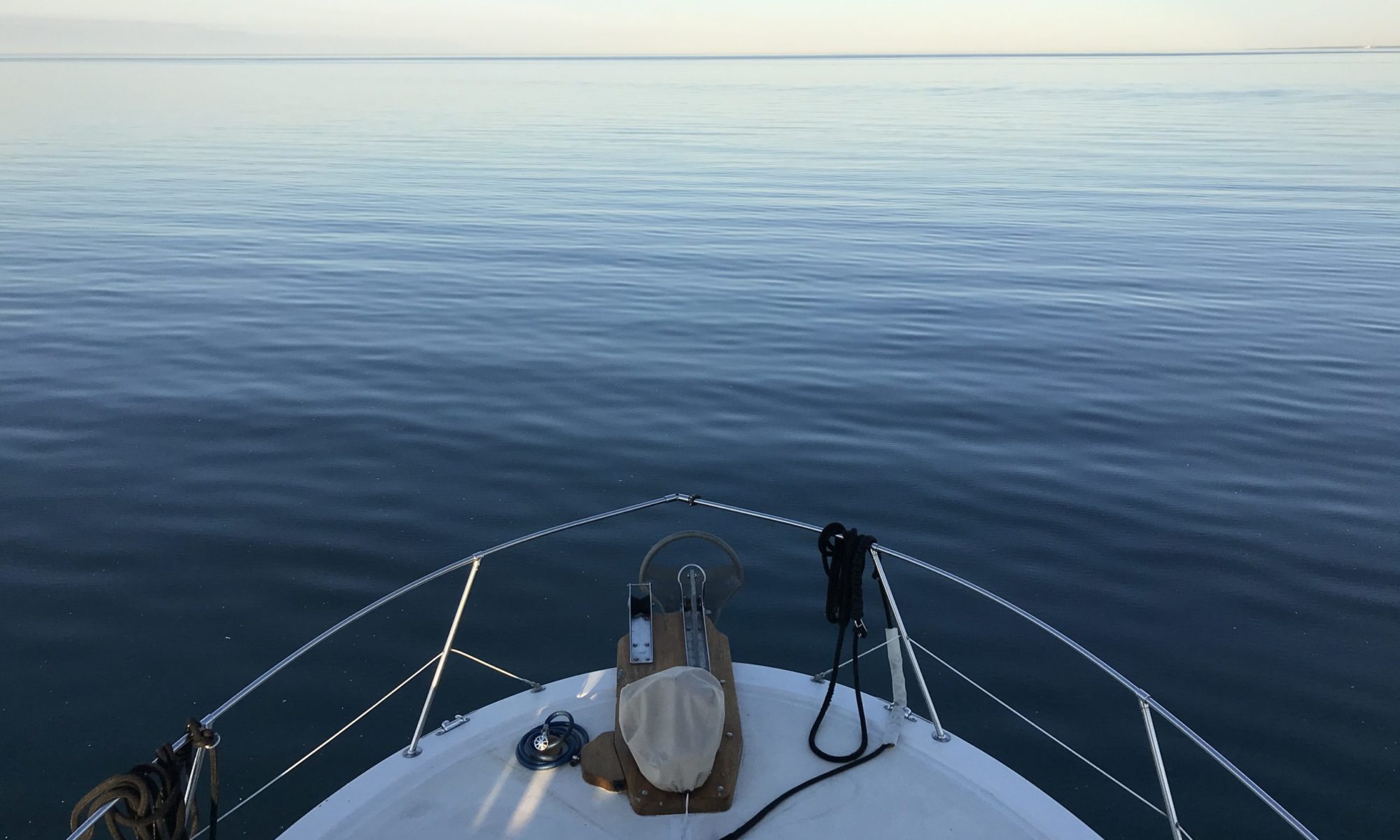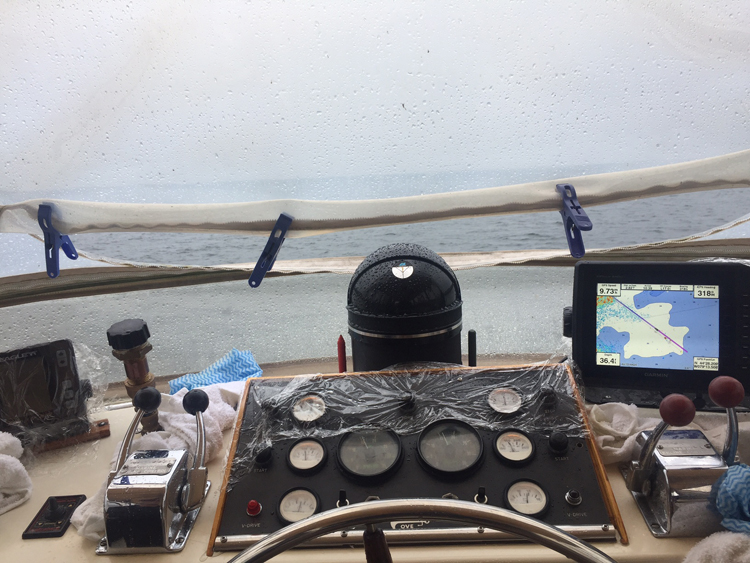
On Friday, June 30, Day 15, we were up – in light rain – for the Lake Simcoe crossing to Lake Couchiching. First, we had to lock through Lock 40 and 41, in the company of Magic Jeanne, and then through the swing bridge at the entrance to the lake, at which point in time a prolonged rain squall hit, cutting horizontally into our bow, along with lumpy waves and very poor visibility. For the first time, the radar was essential to our safety, rather than being an interesting toy. We hammered on, for 1 1/2 hours, and the weather had calmed down by the time we got to the Narrows at Orillia.
We were booked in at Ojibway Bay Marina on the opposite side of Lake Couchiching from Orillia, for a three-day stay to visit with Julia and Robert and daughter Maddy and dog Olivia who have a cottage on Horshoe Island, a five minute dinghy ride from the marina, and to resupply and pump out and enjoy Canada Day. Even now, the weather kept bouncing around, from cold to hot and humid to sun to thunderstorms. This made the dinghy rides – the first of the trip – into roller coaster experiences. Good food, good company, and a respite from travelling every day.
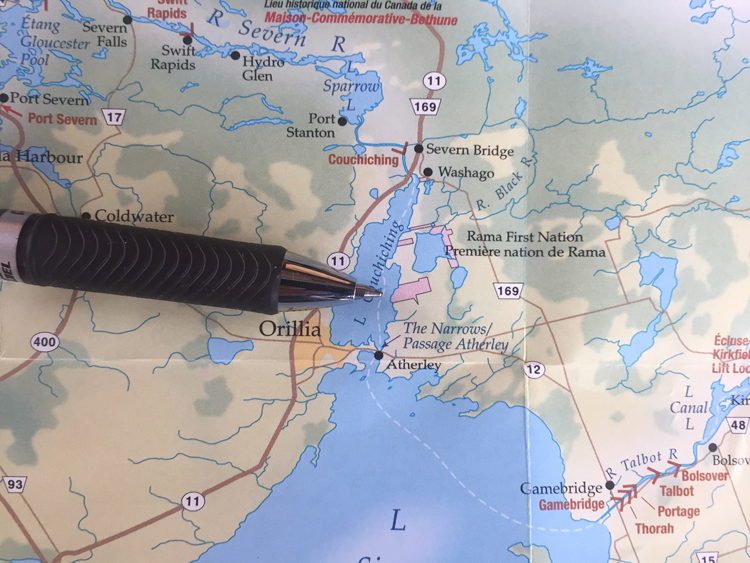
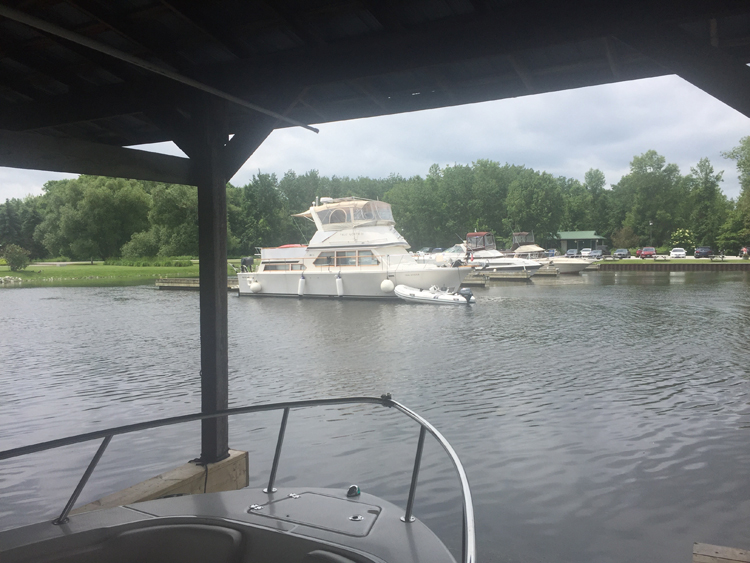
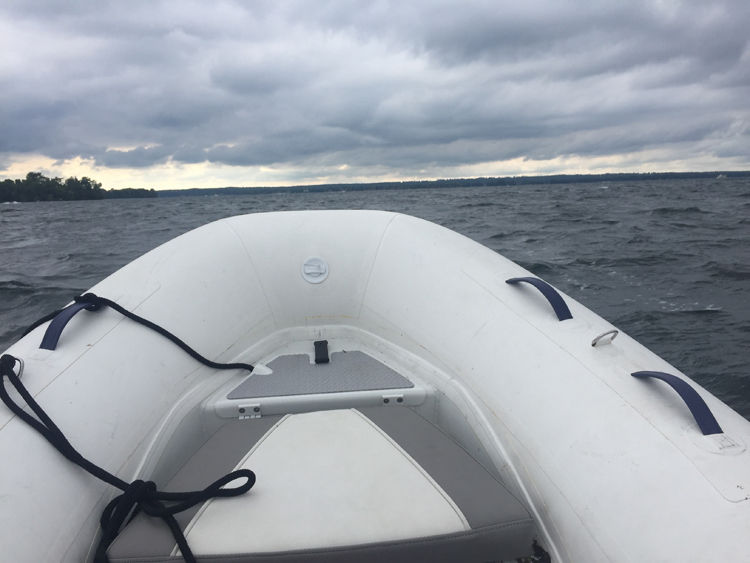
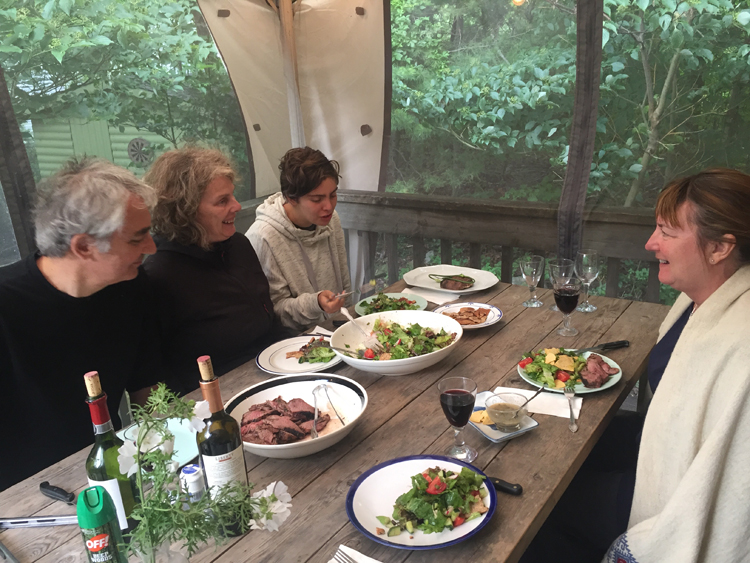

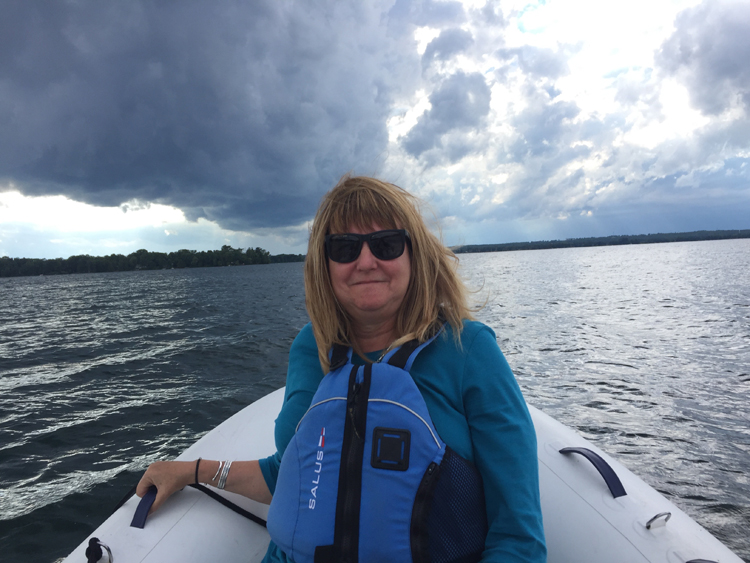
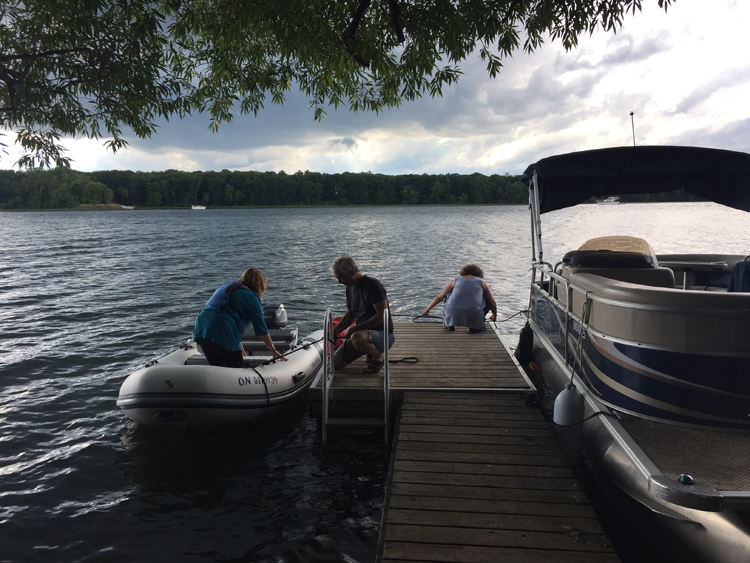
Monday July 3 saw us up early, pump out the holding tank, and leave Ojibway for the canal again, which exits at the north end of Lake Couchiching. A grey day to start with, but then it clears and we are finally due some decent weather. The canal is narrow and with some swift currents, and progress is stopped for a while by a swing bridge that waits for a train, meaning we had to stay in roughly the same spot in the current of the canal, which isn’t as easy as it sounds…
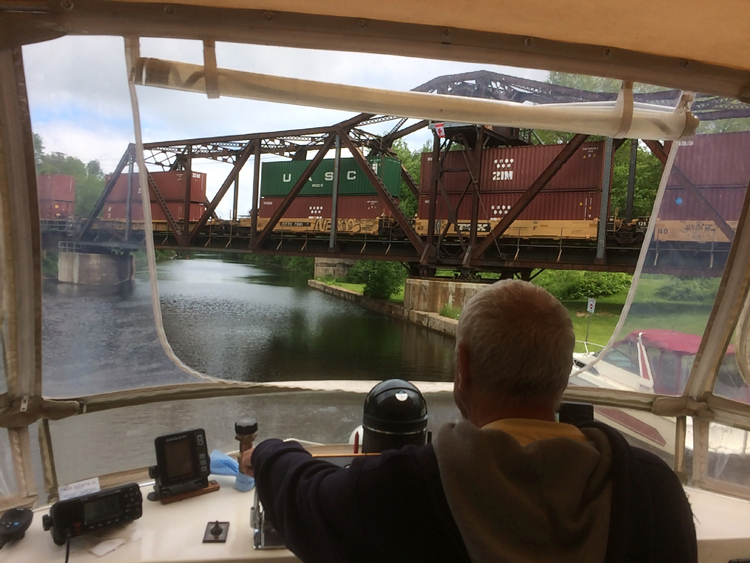
By lunch time we tie up at a very nice Lock 42 for 2 nights, with the plan being for Wendy and Bill to join us for lunch the next day, driving from their cottage. Weather is beautiful. For once. Swimming for the first time, with Stephen diving to remove some of the weeds that have stubbornly remained attached to the port propeller.
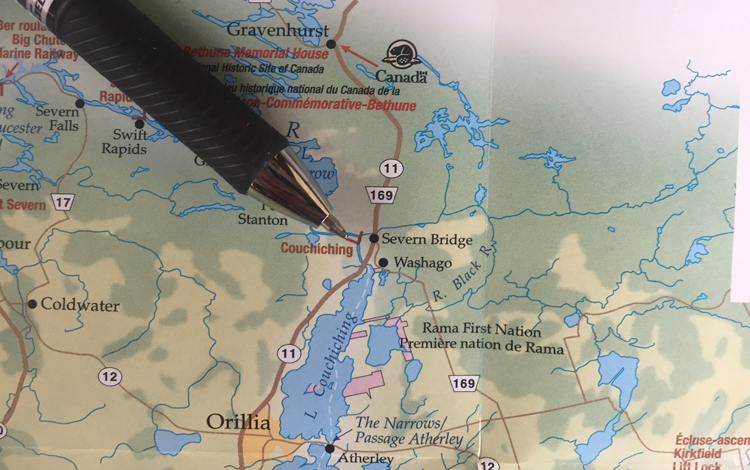
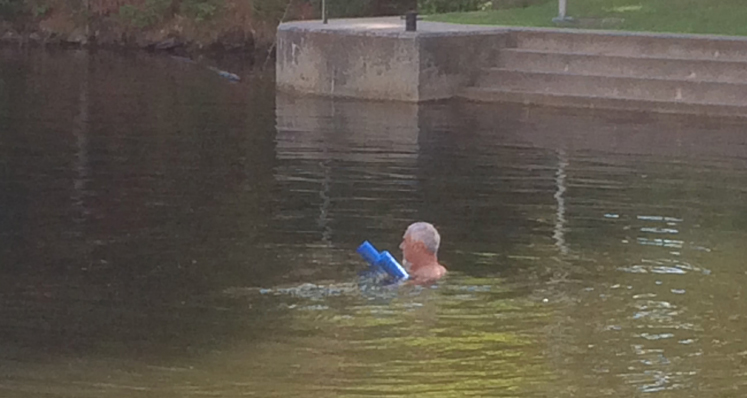
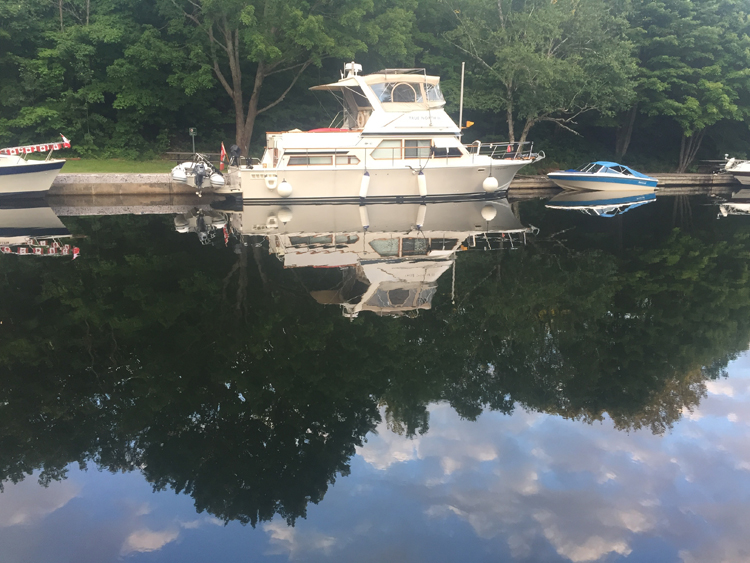
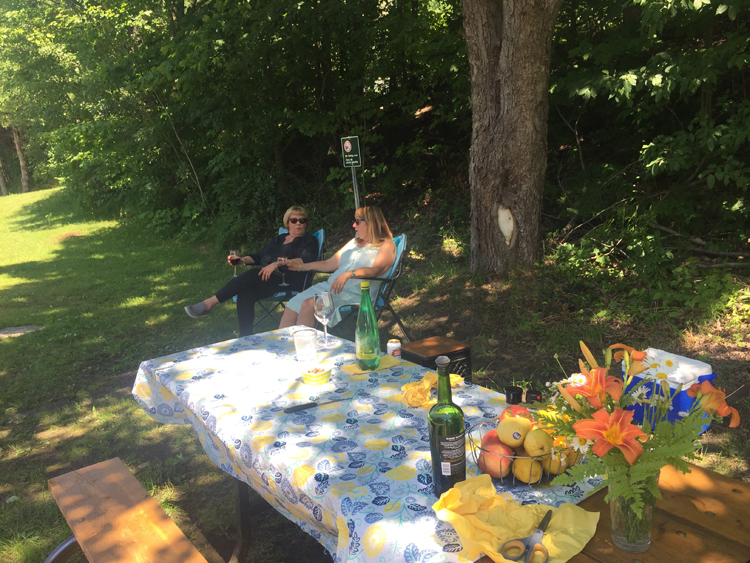
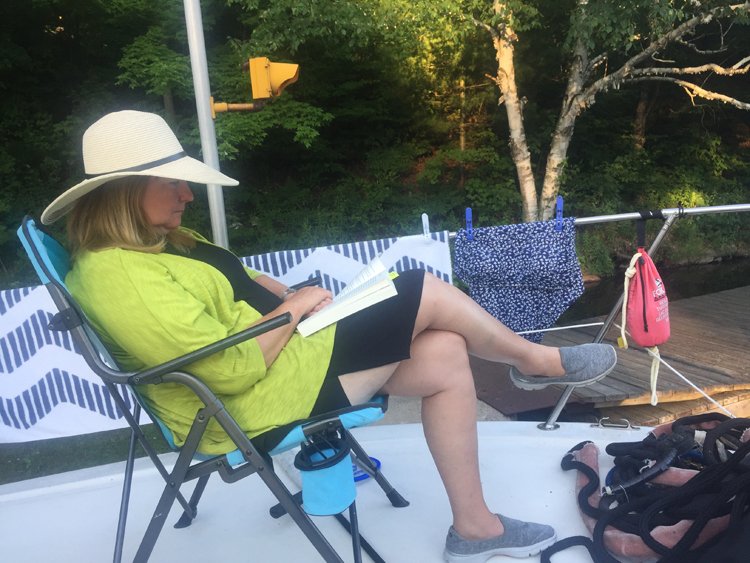
A wrinkle in the boat workings showed up: the (new Westerbeke) generator switched itself off, because it was too hot. A look in the strainer for the cooling water intake in the engine bay showed why: weeds had clogged the intake, reducing the flow of water. By now the gizmo that sucks in the water (called an impeller by those in the know) had given up the ghost. While we had a spare part on board, we (i.e Stephen) did not have the required expertise or tools for the job, so we planned to get a mechanic on the job once we were in Georgian Bay. After all, a generator is a necessary luxury, but not necessarily an absolute necessity (sounds like Donald Rumsfeld).
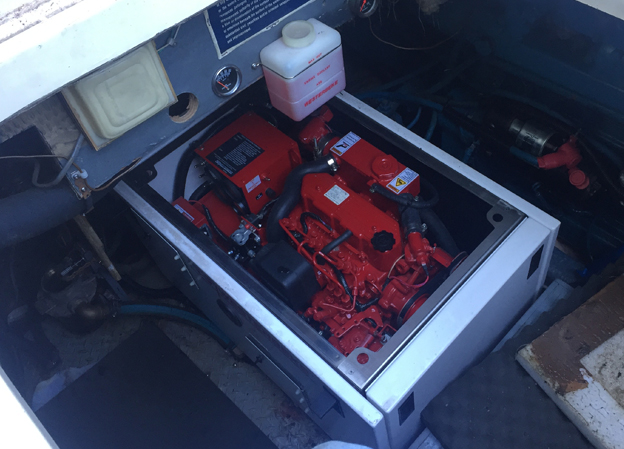
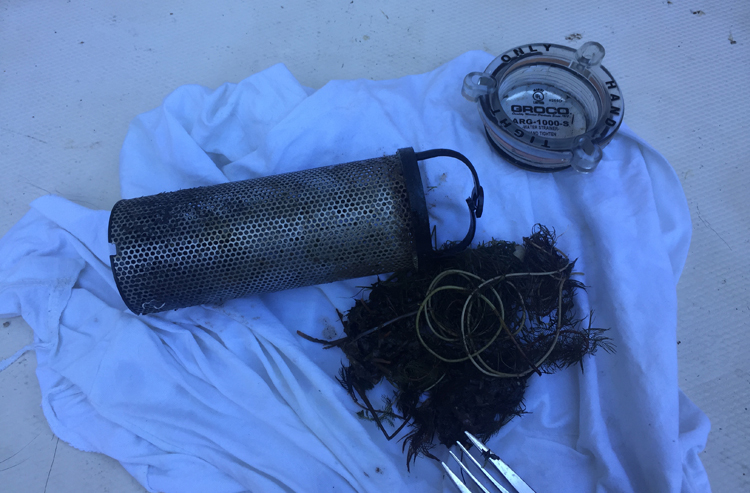
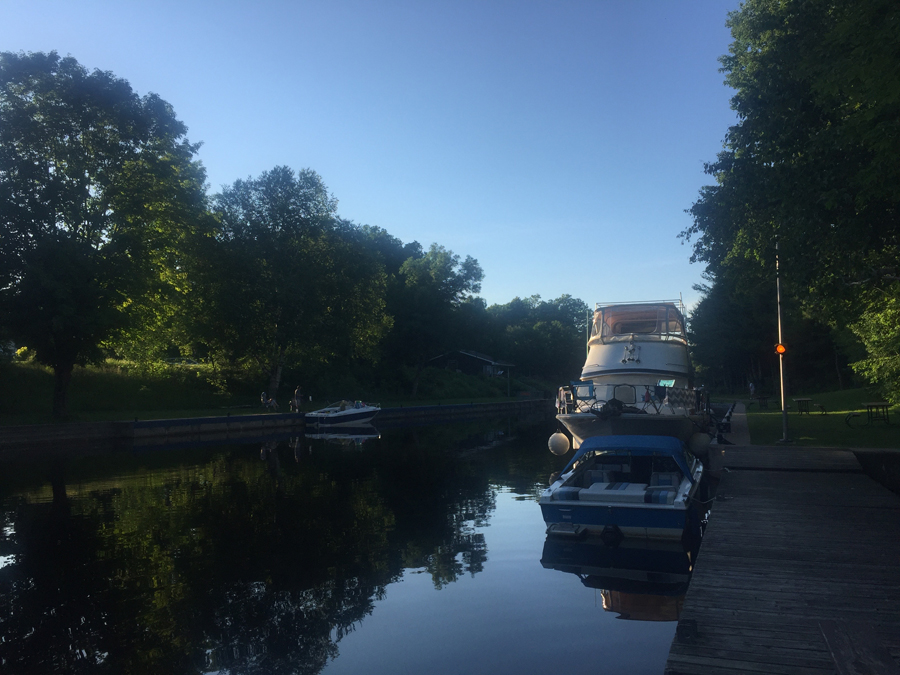
The next day would be the twentieth of the trip, and would see us lock through two more of the last three locks before Georgian Bay. We started at 09:00 hours, and were out of the lock sharpish – only to be held up for three HOURS at another swing bridge, this time run by Parks Canada, because the Coast Guard were overseeing the salvage of a 42 foot Kady Krogan trawler which had hit a rock and sunk a little ways down the canal the week before, and they had closed the waterway for that section. This time, we had a concrete wall to tie up to, but the current was very swift at this point, and would present problems with us undocking when we were eventually to leave, which we did at 1 pm.
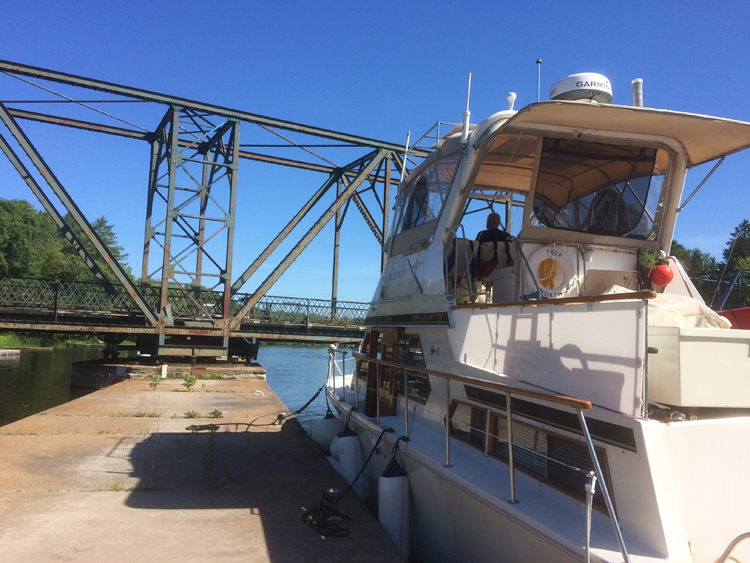
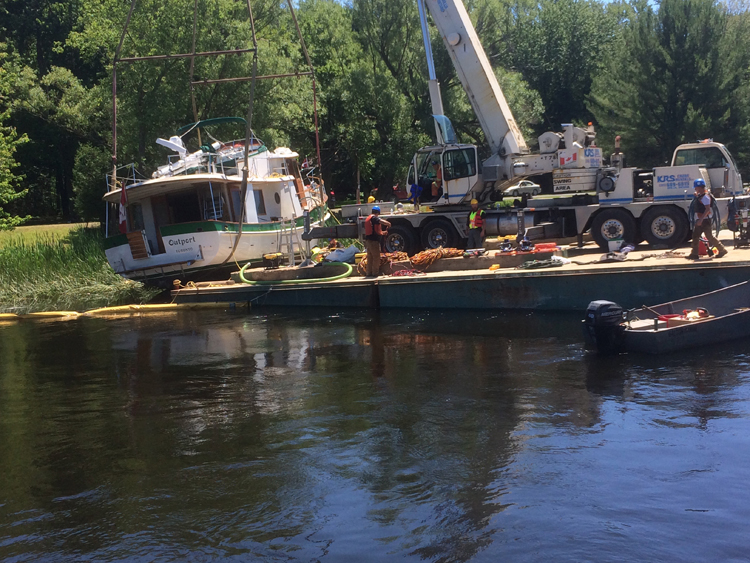
The trawler itself was very familiar, and was, in fact, the very one we had shared locks with, and Canal Lake, a few days before – “Outport” from Toronto. A stabilizer had indeed hit a rock off the channel, and it sank in 10 minutes. Let’s hope they have a good insurance broker.
From here we went through Lock 43 and landed at Lock 44, the famous “Big Chute Lock”, which uses an ancient marine railway to transport the boats a few hundred feet over the granite. It can take boats as big as 80 feet and a hundred or so tons, so the fifteen ton True North would be no problem for them. Meanwhile, we tied up at the public dock for a summer evening…
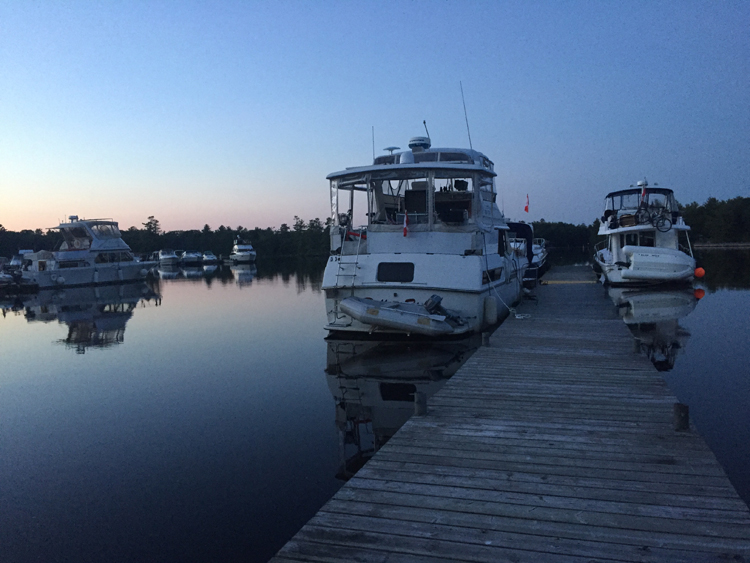
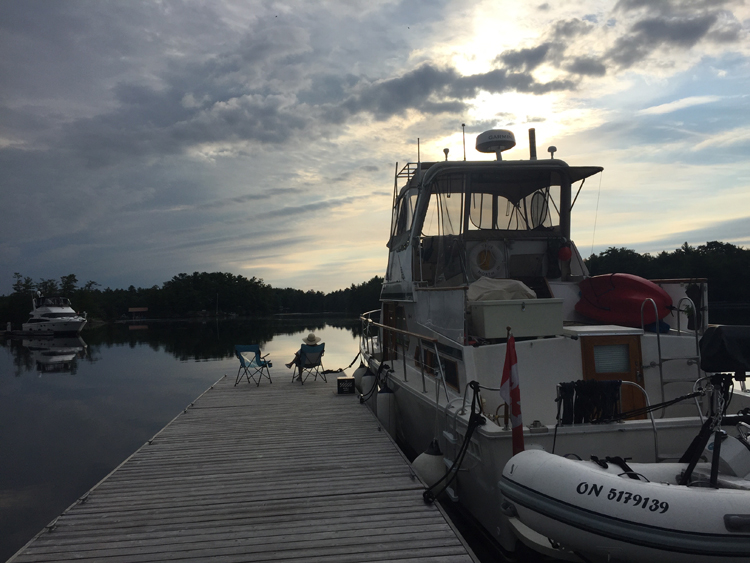
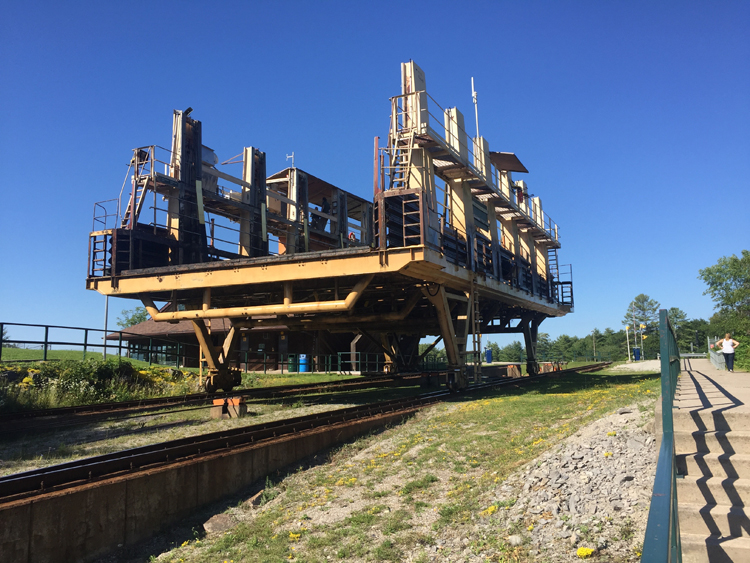
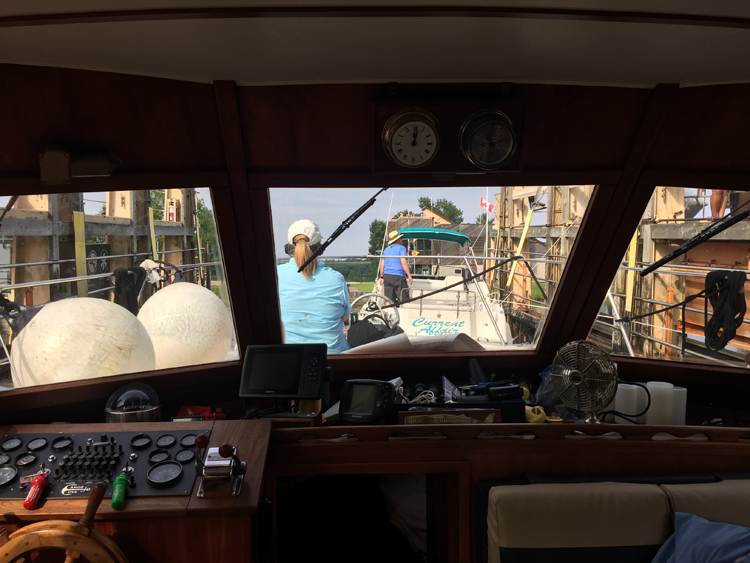
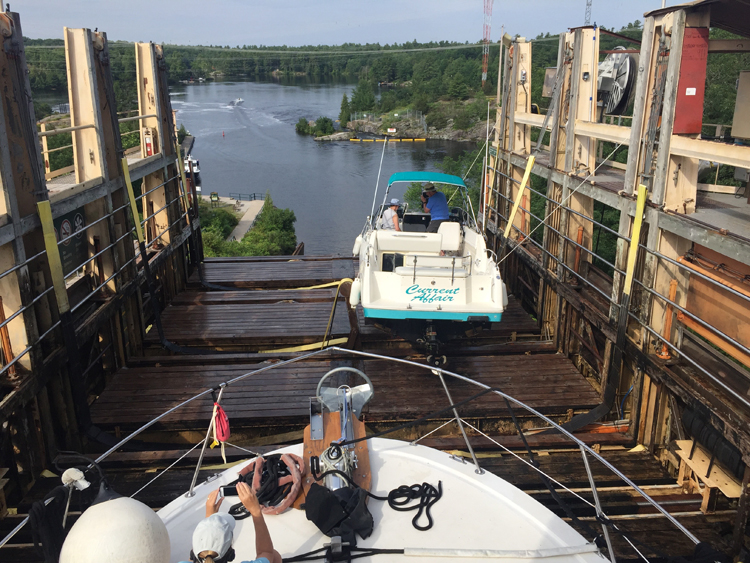
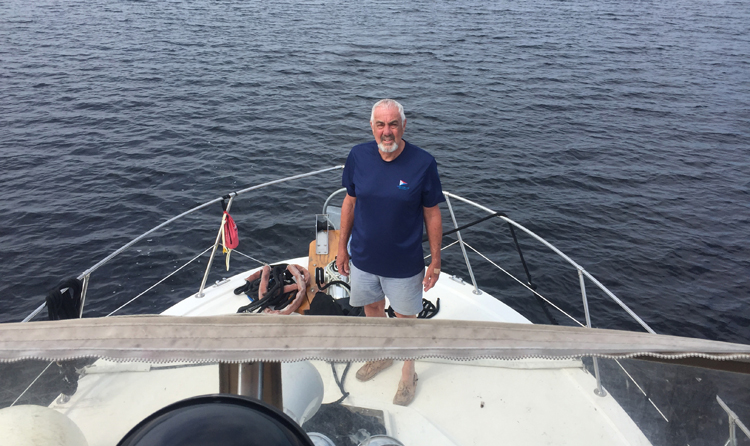
Past the Big Chute, another set of rapids (Little Chute) and then on to Port Severn – the last lock, but probably the most difficult because of the torrential currents from the dam and the fact that once out of the lock, if you’ve survived that, then you have to negotiate a narrow slalom of buoys under a highway bridge, with its own currents, and hope nothing’s coming the other way…
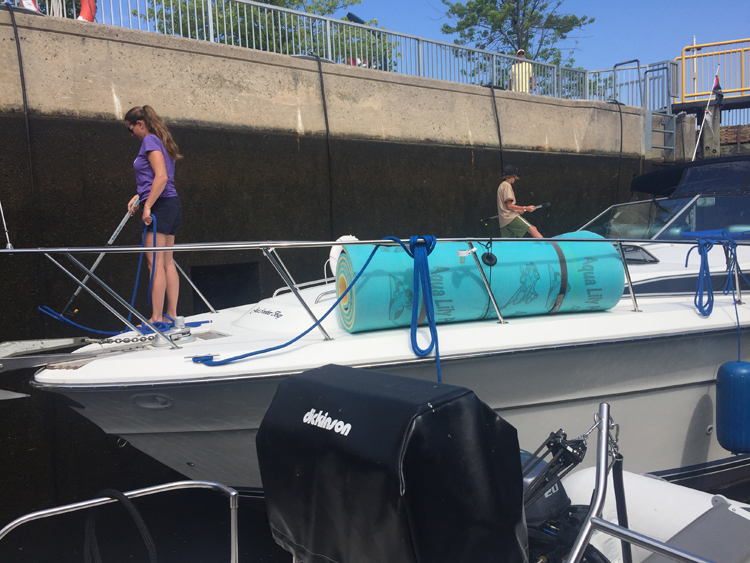
We make it, and then – we are at last in Georgian Bay, with all sorts of warnings: it’s not weeds and currents now, it’s rocks, rocks and more rocks. (A local boater was asked does he know where all the rocks are. He replied: “Nope. But I know where they aint.”) The mantra for the next while is to “stay in the middle of the channel”.
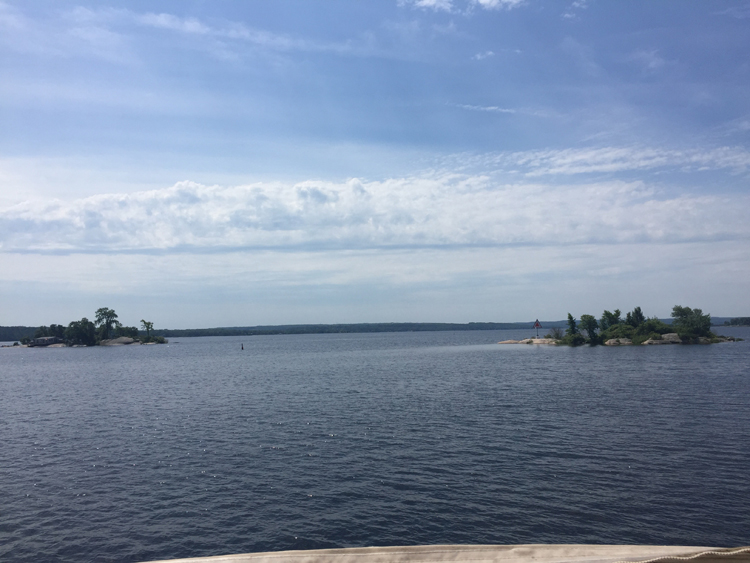
So that afternoon we head for South Bay Cove marina, where we will stay for a night, very close to the cottage of our friends Dave and Liz, and we’ll get the generator fixed. And we don’t hit any rocks. Even though we don’t know where all the rocks are.
